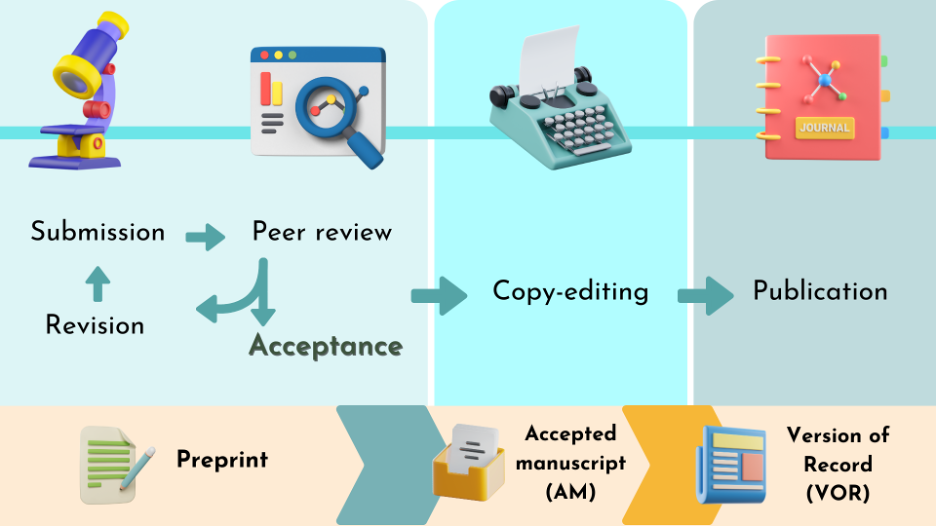Blockchain technology makes scientific research more transparent, fair, and community-oriented by decentralizing control and advancing access to global knowledge.
The academic publishing industry is grappling with numerous challenges that obstruct the free flow of knowledge and the fair recognition of scholarly work. At the core, inefficiencies in the publishing process, high publication costs and discriminatory practices stand out as major hurdles. These issues create an environment where researchers from underprivileged backgrounds or less renowned institutions struggle to get their work published and recognized. In this context, the need for a meritocratic system that recognizes and rewards scientific work based on its quality rather than the financial or institutional power behind it becomes crucial.
One of the most pressing issues is the high cost associated with publishing, known as article processing charges (APCs), which can amount to thousands of dollars for top-tier journals. At present, Nature Communications, known for its high impact and prestige, charges around $6,800 to cover publication costs for all accepted research articles. Furthermore, publishers like PLoS ONE and BioMed Central can charge between $1,500 and $6,000. This amount can pose a financial barrier, limiting access for researchers from less affluent institutions and countries to publish in prestigious journals and gain recognition for their scientific achievements.

Submission process of a traditional journal with peer review. Source: Researcher Connect
Moreover, the traditional peer review system, while foundational for maintaining the quality and integrity of published research, is often criticized for its lack of transparency and potential for bias. Issues such as delayed reviews and reviewers’ anonymity can sometimes contribute to unjust rejections or underestimate the significance of the research.
Blockchain as a Solution for Academic Publishing Challenges
Blockchain technology, best known for its role in cryptocurrency, offers a promising solution to several systemic issues plaguing the academic publishing industry. Its fundamental features —decentralization, transparency and security— align well with the need for more equitable and efficient publishing practices.
Blockchain introduces a decentralized model where research can be published and accessed on a distributed ledger. This model reduces the influence of any single reviewer or editor, thereby diminishing potential biases in the selection and review processes.
Also, the transparency inherent in blockchain technology can be leveraged to make the peer review process more open and fair. Every transaction on a blockchain is recorded on an immutable and time-stamped public ledger. Applying this to academic publishing means that submissions, decisions, and reviews can be traced and verified, which discourages misconduct and enhances trust in the published material.
Another significant advantage of using blockchain is the security and permanence it offers. Once information is added to the blockchain, it cannot be altered or deleted, which ensures the permanent record of scientific discoveries. This feature is particularly crucial in a landscape where retractions and modifications of published research are concerns.
NobleBlocks: Implementing Blockchain in Academic Publishing
As a decentralized science (DeSci) platform, NobleBlocks emerges as a transformative solution to the fundamental problems within the academic publishing sector. The platform initiates change by addressing the inefficiencies, high costs and biases that often obstruct equitable access to scholarly communication.

Benefiting from blockchain technology, NobleBlocks addresses imbalances in academic publishing. Source: NobleBlocks
By integrating blockchain technology, NobleBlocks introduces a decentralized publishing framework that significantly reduces the influence of any centralized authority, such as traditional publishers or editorial boards. This structure allows researchers from various backgrounds, regardless of their institutional affiliation or geographical location, to publish their work without discrimination based on their less renowned status or lack of connections.
A pivotal feature of NobleBlocks is its emphasis on transparency and security. Every transaction, including manuscript submissions, peer reviews and editorial decisions, is recorded on an immutable blockchain. In other words, the entire process is traceable and secure, which not only enhances trust in the published material but also protects the integrity of scientific discoveries.
The platform employs a tokenized system instead of conventional fees. Authors, reviewers, and editors use and earn tokens for their contributions, which can also be traded within the platform.
NobleBlocks’ streamlined process enables faster publication times than conventional journals. By leveraging blockchain technology and automated workflows, the platform allows for quicker peer review and editorial decisions. This efficient, user-friendly system ensures that research findings are disseminated significantly faster.
Overall, NobleBlocks leverages blockchain’s robust features to offer a more open, fair, and cost-effective platform for academic publishing. The platform ensures that scientific insights are accessible and available to share, fostering a more inclusive scientific community. This innovative approach will not only raise the bar for academic publishing but also remove barriers that would otherwise limit the democratization of knowledge.


















